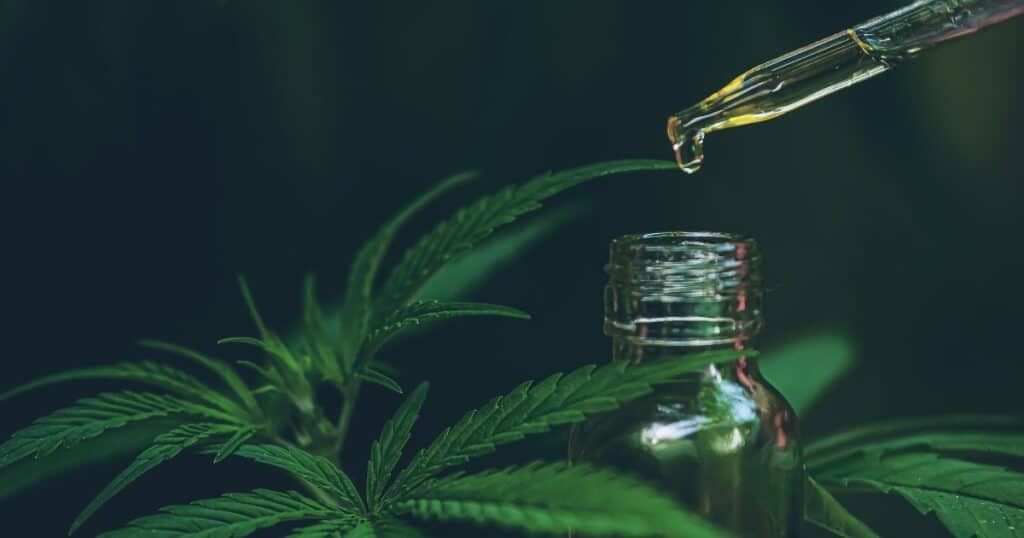Cannabis related regulation in the United States is everchanging and rapid, and California has just recently made a significant move to add to that. Governor Gavin Newsom’s recent emergency regulation to ban hemp-derived THC products in California has stirred up controversy and confusion. For individuals who depend on these products for medical purposes or enjoy them recreationally, the new regulations could have a profound effect. Additionally, hemp businesses are likely to face significant repercussions.
California’s New Hemp-Derived THC Ban
Governor Gavin Newsom’s emergency ban on hemp THC products was approved by the Office of Administrative Law on Monday and is now in effect. This also outlines that the minimum age to purchase hemp products is 21 and limits the number of servings of hemp products to five per package. This sweeping regulation effectively shuts down a huge part of California’s hemp industry, which had thrived under more lenient rules under the 2018 Farm Bill.
The ban means that retailers can no longer sell popular products like hemp THC-infused drinks, as well as many types of medicinal products made with CBD. This sudden shift has left many consumers and businesses scrambling to adapt.
The 2018 Farm Bill was a piece of legislation that federally legalized hemp, defined as cannabis containing no more than 0.3% THC on a dry-weight basis. This bill allowed for the production, sale, and consumption of hemp-derived products across the United States, which sparked a revolution in the hemp industry.
However, Governor Newsom’s new regulations go much further. According to the California Department of Public Health (CDPH), the new rules require that industrial hemp food, beverages, and dietary supplements intended for human consumption have no detectable THC or any comparable cannabinoid per serving.
Governor Gavin Newsom’s emergency regulations on hemp-derived THC entered into force approximately a month following the California Senate Appropriations Committee’s decision to halt Assembly Bill 2223.
The bill aimed to limit the sale of products containing intoxicating hemp derivatives, such as synthetically derived cannabinoids, in venues such as smoke shops, gas stations, and liquor stores. Before the enforcement of Newsom’s regulations on September 23rd, California lacked any legal restriction on the permissible THC milligram content in products derived from hemp.
Regulators Reason For Ban
The CDPH and Newsom’s administration argue that stricter regulation is necessary to prevent underage access to intoxicating products.
“We will not sit on our hands as drug peddlers target our children with dangerous and unregulated hemp products containing THC at our retail stores. We’re taking action to close loopholes and increase enforcement to prevent children from accessing these dangerous hemp and cannabis products.” – Said Gov Newsom in a press release on September 6th.
Newsom’s emergency regulations have been deemed an emergency situation by the Office of Administrative Law, making the ban effective until March 25, 2025, according to SFGate.
However, critics claim that the ban will have disastrous effects on those who rely on hemp for medical reasons, as well as hemp farmers and small businesses.
Impact on California Consumers and Businesses
Many medical patients depend on hemp THC products to manage various health conditions. With the ban in place, these individuals may find it difficult or impossible to obtain the products they need. Retailers, such as vape shops, liquor stores, and convenience stores, must promptly comply with the emergency order by removing these products from their shelves. Consumers who rely on hemp THC products must now look for alternatives.
Those over the age of 21 may still be able to purchase intoxicating cannabis products at licensed dispensaries in California. However, non-intoxicating CBD products with any traceable amount of THC are now prohibited outside the licensed cannabis market.
The economic impact of the ban is likely to be significant. The hemp industry has grown rapidly since the 2018 Farm Bill and many businesses and farmers depend on the sale of hemp THC products.
The U.S. Hemp Roundtable, a national trade organization, has vowed to challenge Newsom’s emergency rules in court, arguing that the ban is an industry-killing measure that could prohibit 90%-95% of hemp products in the California market.
Now, instead of addressing legitimate regulatory concerns shared by all good actors in the cannabis space – such as establishing reasonable policies to keep intoxicating products out of the hands of children — Governor Newsom instead has proposed a complete retail prohibition on 90-95% of popular hemp products for adults, including most non-intoxicating CBD products that he purports to support in his public communications. – said Jonathan Miller, General Counsel to the U.S. Hemp Roundtable
States Setting Up Own Hemp-Derived THC Regulations
Interestingly, California is not alone in its pursuit of stricter hemp regulations. Missouri Governor Mike Parson, for example, is currently taking a similar approach through an executive order he issued last month, which banned any psychoactive cannabis compounds outside of licensed retailers. Additionally, state attorneys general throughout the nation are taking action to curtail the spread of intoxicating hemp products.
This situation highlights the ongoing tension between federal and state regulations in the cannabis industry. While the 2018 Farm Bill set a federal standard, individual states are free to impose their own, stricter rules. This creates a patchwork of regulations that can be difficult for businesses and consumers to navigate from state to state.
The future of hemp THC in California is uncertain. The U.S. Hemp Roundtable and other industry stakeholders will certainly challenge the new regulations in court, arguing that the ban is not only unnecessary but also harmful to consumers and businesses.
Legal battles over the ban are likely to unfold over the coming months and years. The outcome of these challenges could shape the future of hemp regulation not only in California but across the United States.

















